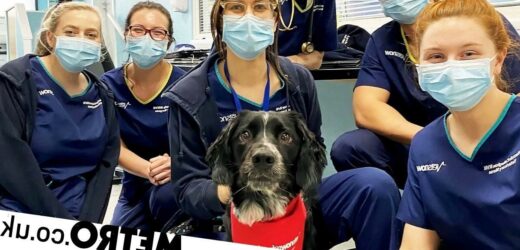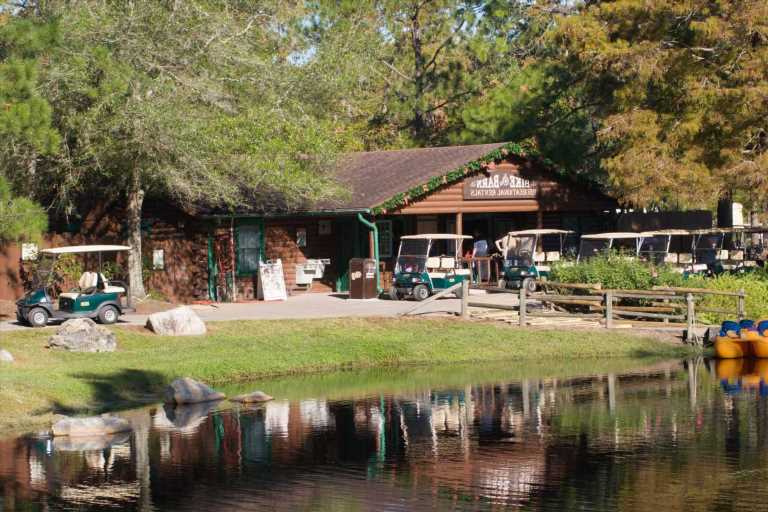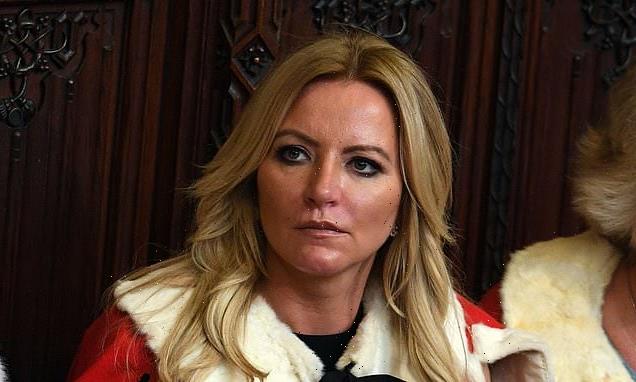A dog that nearly died from a rare blood disorder was saved thanks to a trailblazing high-tech treatment – and is now back to his usual mischevious self.
Springer spaniel and border collie cross Riley, aged one, was rushed to vets by his worried owners after his temperature soared, he became lethargic, and started shaking.
Medics suspected he was suffering from a highly aggressive form of anaemia and he was taken to specialists in Edinburgh.
Tests confirmed the pup had immune mediated haemolytic anaemia – a potentially fatal condition which leads to reduced oxygen supply to the brain and organs.
As the rare disorder is so serious, it was touch and go, and vets recommended Riley’s owners consider a pioneering procedure called therapeutic plasma exchange.
The extremely complex process sees blood extracted and then piped through a purification machine before being pumped back into a patient.
Not only was Riley saved by the treatment, he’s now made a full recovery six months later.
Owner Lisa Gregory from Perth, Scotland, said: ‘He’s really a very lucky dog – and he’s brave too. He was so well behaved and tolerant of all the procedures.
‘In the end, he didn’t need sedating for the plasma exchange but did need a large cannula in his neck just in case of any issues.
‘And the amazing thing is to look at Riley now, it’s as if nothing ever happened. He’s back to opening the treat cupboard with his nose.’
Riley spent eight days in intensive care at the Royal (Dick) School of Veterinary Studies, Hospital for Small Animals, part of the University of Edinburgh, in March.
Staff carried out multiple blood transfusions to try to save his life, but despite aggressive immune suppressive treatment and nine blood transfusions Riley’s condition continued to worsen.
It was thought the therapeutic plasma exchange was only available in London until Vets Now’s 24-hour emergency hospital in Glasgow offered to carry out the procedure.
Mum-of-two Lisa said: ‘We spoke with the Vets Now team on the phone and they were very honest with us.
‘They explained that there were no guarantees whatsoever but they believed Riley had a chance of recovering if the plasma exchange was carried out.
‘For Riley’s sake we decided we had to give it a try.’
The family have had the pet since he was a puppy, and Lisa says they ‘couldn’t imagine life without him’ so had to explore every available option.
It was a difficult decision, but Lisa and husband Phil were amazed when just five days after dropping him off, Riley was ready to head home.
Emergency and critical care specialist Neus Elias, at Vets Now, who carried out the pioneering treatment on Riley explained: ‘This technique has only been used twice before in Scotland for this disease, and once before for a different disease.
‘Over the course of six hours, we slowly processed three pints of Riley’s blood.
‘The watery portion of the blood was discarded, and Riley was then transfused with an equal volume of plasma products to replace this from healthy dog donors. The washed-out cells were then transfused back to him.’
He added: ‘We all remember Riley, he was such a loveable character and such a challenging case.
‘We’re just so delighted he’s made such a great recovery. His case really does show that even in the bleakest of situations there can often be hope for your pet.’
The poorly dog has just finished his final round of medication, but still needs ongoing blood checks to ensure he remains healthy.
For now, his owners are just appreciating getting their pet back.
Lisa said: ‘Poor Riley had been so ill for so long that it seemed almost impossible to have him back to any kind of health.
‘To see him walking out on his lead was a really emotional moment.’
Do you have a story to share?
Get in touch by emailing [email protected].
Source: Read Full Article




